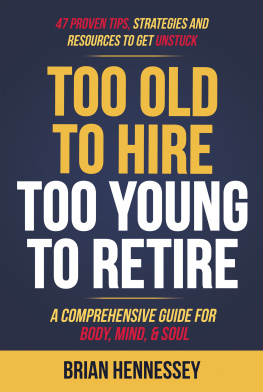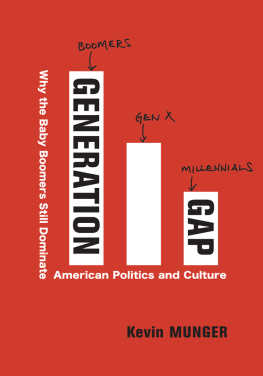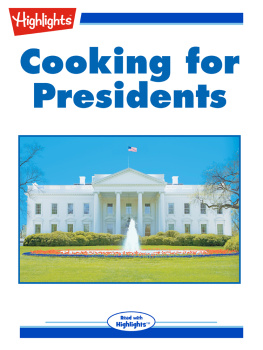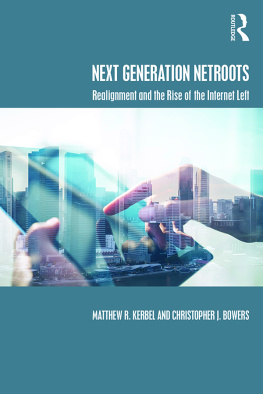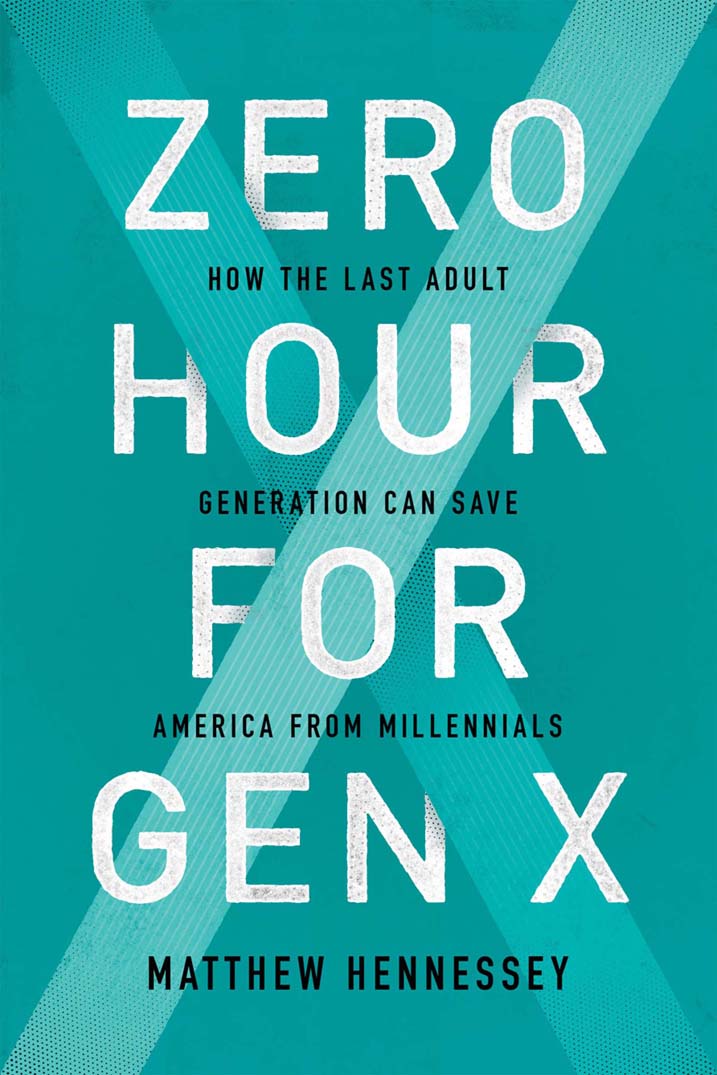

2018 by Matthew Hennessey
All rights reserved. No part of this publication may be reproduced, stored in a retrieval system, or transmitted, in any form or by any means, electronic, mechanical, photocopying, recording, or otherwise, without the prior written permission of Encounter Books, 900 Broadway, Suite 601, New York, New York, 10003.
First American edition published in 2018 by Encounter Books, an activity of Encounter for Culture and Education, Inc., a nonprofit, tax exempt corporation.
Encounter Books website address: www.encounterbooks.com
The paper used in this publication meets the minimum requirements of ANSI/NISO Z39.481992 (R 1997) (Permanence of Paper).
FIRST AMERICAN EDITION
LIBRARY OF CONGRESS CATALOGING-IN-PUBLICATION DATA
Names: Hennessey, Matthew, 1973 author.
Title: Zero hour for gen X: how the last adult generation can save America from millennials / by Matthew Hennessey.
Description: New York: Encounter Books, [2018] |
Includes bibliographical references and index.
Identifiers: LCCN 2018000152| ISBN 9781594039942 (hardcover: alk. paper) | ISBN 9781594039959 (ebook)
Subjects: LCSH: Generation XUnited States. | Intergenerational communicationUnited States. | Intergenerational relationsUnited States. | Conflict of generationsUnited States. |
InternetSocial aspectsUnited States.
Classification: LCC HQ799.7 .H475 2018 | DDC 305.2dc23
LC record available at https://lccn.loc.gov/2018000152
Interior page design and composition: BooksByBruce.com
For my mother, who is surely smiling.
CONTENTS
Table of Contents
Guide
People generally remember the strapping actor Christopher Reeve for two things: his 1978 role as Superman and the unfortunate horseback-riding accident that left him paralyzed from the neck down in 1995. I remember him for something else.
Shortly before his accident, the Juilliard-trained Reeve gave a supple supporting performance in The Remains of the Day as an American congressman visiting the United Kingdom shortly before the outbreak of World War II. Anthony Hopkins and Emma Thompson took the starring roles, but Reeves fine work in the melancholy Merchant Ivory drama was noticed and talked about. In a 1996 interview with Larry King, the wheelchair-bound Reeve said that he felt his accident had come just as he was poised to shake free of the action-hero persona that had clung to him since Superman. His career, he felt, was about to take a turn away from roles that required little more than that he look good. He was hoping to transition into substantive parts in better films.
I was just getting the hang of it, he said with obvious regret.
After his accident, the once physically vital Reeve appeared in a handful of movies and did a bit of directing for television from his wheelchair, but physical paralysis robbed him of the opportunity to do what hed worked so hard to prepare himself for. He died a few years later. The King interview added a layer of pathos to Reeves tragic story. He lamented the loss of his power and athleticism, but what really bothered him was that he could never show the world what he was capable of doing as an actor.
This book is about Generation X, the relatively small cohort of Americans sandwiched between the twin generational behemoths known as the baby boomers and the millennials. Culturally, politically, socially, technologically, and economically, the torch is being passed from the older generation to the younger one while the one in the middle is being mostly ignored. With the baby boomers on the way out, the culture is turning its attention to millennial needs, millennial tastes, millennial peculiarities, and millennial preferences. Generation X is at best an afterthoughtwhen we are thought of at all.
My thesis is simple: if Generation X doesnt get its act togetherand fastwe, like Christopher Reeve, will have the rug pulled out from under us just as were on the verge of realizing our potential. That would be a pity, both for the individuals who could have made a difference and for a society that desperately needs a counterbalance to the millennial rush to a digital world, with its ethos of instant gratification, public shaming, and isolation-by-technology. In this new world, everything from privacy to freedom of speech is viewed as a relic from a boring, underdeveloped, and less enlightened past.
If you prefer newspapers and books to screens and pads; if your tastes run to music made with instruments rather than computers; if you value privacy; if you dont want behemoth tech firms spying on you in your home and your car, storing the data and selling it to the highest bidder so that you can be more accurately targeted by marketers and advertisers; if open debate is important to you and the chill winds of speech codes and political correctness on our college campuses have already sent a shiver up your spine; if saying what you like and laughing at what you find funny is your definition of freedom; if youd rather work for a living than take a guaranteed government income financed by Silicon Valley profits; if drone deliveries and sex robots give you the creeps; if youve ever scratched your head in wonder after reading an article about what millennials know and how they think about the worldthen this is the time to make a stand.
It is, as the title says, zero hour. Soon itll be party over. Whoops! Out of time.
Not long ago I had a conversation with a woman who is younger than I am. Im 44. Id say shes about 25. I told her that I was working on finishing a book. She asked what it was about. I chose my words carefully.
Its about Generation X, I said. She paused, a quizzical look on her face.
Remind me who they are again?
Theyre people about my age, in our forties and early fifties, I told her. Its about how we grew up in a world that was very different from the one that you and your friends grew up in and how that world is quickly slipping away.
Great. Another book about how awful millennials are, she said. Cant wait.
An understandable reaction; nobody wants to hear about the supposed shortcomings of a group that they had no choice but to join. I nodded dumbly and shrugged.
Oh yeah, Generation X, I remember now, she said, flashing a wry smile. Youre the generation that isnt going to get a president.
Thats pretty much it, I had to concede.
This is the moment when members of Generation X should be setting the national agenda. We should be entering a period of social, political, and cultural influence, if not control. We have the experience and the energy necessary to do the big jobs. We should be getting ready to steer the ship, but we are about to get swamped by a millennial wave that has already started crashing hard into the worlds of business, politics, entertainment, religion, dating, medicine, and education. Even the military is watering down its once-rigid standards in order to cater to millennial penchants and predilections. If we dont act fast, the millennial wave is going to sweep Gen X overboard. Were going to miss our moment, becoming nothing more than a demographic footnote of American historythe inconsequential, shade-strewn valley wedged between two enormous generational peaks.
Raised in a pre-revolutionary moment technologically, Gen Xers are children of paper, pens, books, handshakes, body language, and eye contact. We learned the virtues of patience, self-control, and delayed gratification, even if we didnt always practice or appreciate them. We knew what it meant to be out of contact with someone we loved. Some of us, perhaps too few, learned how to fix an engine or wire a light fixture. Most remember how quiet things used to be; how easy it was to be alone.



